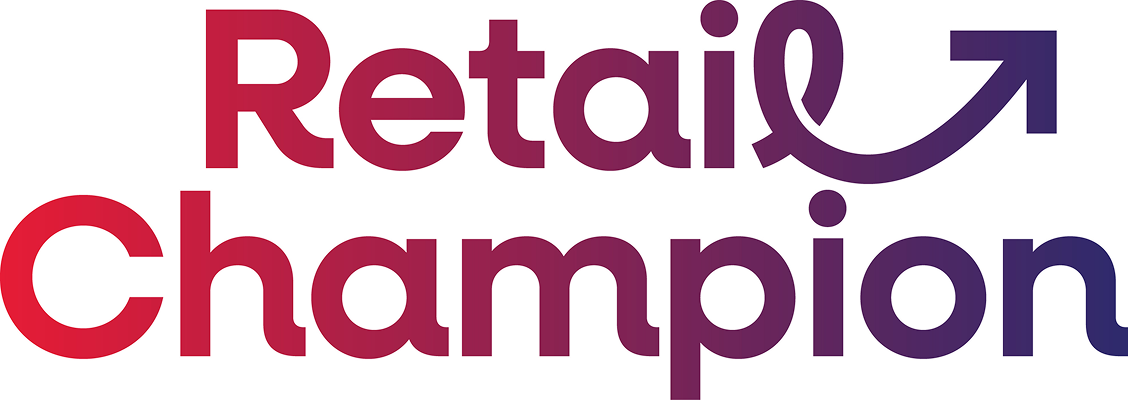
By Zana Busby
Being a business owner is often romanticised as the epitome of freedom and autonomy. You’re your own boss, you set your own hours, and you reap the rewards directly. Sounds idyllic, doesn’t it? Yet, the reality for many entrepreneurs, particularly in the fast-paced retail sector, is far from this dream. Instead, it’s a high-wire act without a net, demanding not just business acumen but an immense mental and emotional load that would test the resilience of anyone.
The Daily Grind
Consider the sheer breadth of roles you effortlessly (or so it seems from the outside) inhabit on a daily basis. You’re the visionary strategist, charting the course for your brand’s future. You’re the chief financial officer, meticulously managing cash flow and budgets. The customer service guru, resolving queries and ensuring satisfaction. The marketing maestro, crafting campaigns that capture attention. And often, you’re the de facto HR department, managing your team’s needs and fostering a positive work environment. This multi-faceted performance, while impressive, can lead to a state of chronic stress, subtly eroding your mental reserves.
Adding another layer of complexity are the inevitable life transitions that everyone encounters. Whether it’s navigating the hormonal shifts of menopause, caring for ageing parents, or the demanding (yet rewarding) journey of parenting, these personal challenges don’t pause just because you own a business. For women, these hormonal changes can intensify this, worsening anxiety, brain fog, sleep issues, and mood swings, making the entrepreneurial journey feel even more arduous. Men, too, face immense pressure to relentlessly push forward without slowing down or delegating, which can lead to the same spiral and often results in quiet burnout. This constant state of ‘doing’ without adequate ‘being’ is what I so aptly term the “burnout loop” – a pervasive, yet rarely discussed, reality for many entrepreneurs.
You’re Not Weak, You’re Human
First, let’s drop the shame.
You’re not lazy. You’re not failing. You’re not “bad at time management.” You are human, carrying a mental and emotional load that would overwhelm most people. Our society, regrettably, has a deeply ingrained belief system that inextricably links our worth to our output. The harder you work, the more hours you clock, the more “successful” you are perceived to be. When fatigue sets in, the common mantra is to “push through”. When overwhelmed, the advice often boils down to “get organised”.
But here’s a dose of uncomfortable truth: your body, and more importantly, your nervous system, doesn’t respond to productivity slogans. It needs rest, not because you’re weak, but because you’re running on empty. This isn’t a sign of weakness; it’s a fundamental requirement for sustainable performance.
The Myth of Constant Productivity
This pervasive myth of constant productivity is, in essence, the real problem. It drives us to ignore the warning signs our bodies and minds are desperately sending. It fuels the guilt when we consider taking a break and perpetuates the cycle of fatigue, anxiety, and ultimately, self-blame. But breaking free from this cycle is not only possible but essential for your long-term success and well-being.
Actionable Insights: Your Roadmap to Mental Well-being
So, what can you do when you find yourself caught in this relentless current of fatigue, anxiety, and self-blame? I offer five powerful, actionable strategies to help you reclaim your mental peace and, paradoxically, enhance your business performance.
- Notice the Patterns, Then Name Them: The Power of Awareness
The first, and arguably most crucial, step towards mitigating burnout is awareness. You can’t address what you don’t acknowledge. I suggest a simple yet profound exercise: keep a short journal (paper or digital) to track key indicators.
Times of fog or anxiety: When do you feel mentally cloudy or disproportionately anxious? Is it after a particularly demanding meeting, or perhaps a certain type of client interaction?
Sleep quality/patterns: Are you consistently getting enough restorative sleep? Do certain activities before bed disrupt your sleep?
Energy crashes and peaks: When do you feel most energetic and productive? When do you experience significant slumps?
Emotional triggers: What situations, conversations, or even internal thoughts tend to provoke a strong emotional response?
As you consistently track these elements, fascinating patterns will begin to emerge. Maybe your brain fog is worse after poor sleep or certain foods. Maybe you spiral more on Sundays. This isn’t just data collection; it’s power. Once you understand your rhythm, you can begin to work with it, not against it. This awareness is your secret weapon, allowing you to proactively manage your energy and mental state.
Redefine Rest: Beyond Just Sleep
In our hyper-productive culture, rest is often narrowly defined as sleep. While essential, sleep is only one facet of true rejuvenation. I insightfully redefine rest as “anything that allows your nervous system to switch from ‘fight or flight’ to ‘rest and digest'”. This subtle yet powerful distinction opens up a world of possibilities for integrating moments of calm into your hectic day.
Think beyond the traditional weekend getaway. What about a 10-minute walk without your phone? Imagine the impact of taking a few minutes of breathing between meetings? Learning to say “no” to nonessential tasks can free up invaluable mental and physical energy. And crucially, letting yourself express emotions without guilt or crying without apologising for it is a profound act of self-care that allows your nervous system to release pent-up tension. These aren’t luxuries. They’re necessary.
2. Delegate Without Guilt: Leadership in Action
This is often the trickiest hurdle, especially for women taught to carry everything quietly. The notion of asking for help can feel like an admission of failure. However, I powerfully reframe delegation not as a weakness, but as a strategic act of leadership.
Start small to build this muscle:
- Can someone else do the school run?
- Can you outsource bookkeeping?
- Can your team handle a call without you?
Delegating protects your energy and supports your long-term capacity.
3. Talk to Someone Who Understands: Breaking the Isolation
The entrepreneurial journey, while rewarding, can be profoundly isolating. You’re often making tough decisions alone, bearing the weight of your business and your team on your shoulders. It’s easy to feel like no one truly “gets it.” This is precisely why seeking external support is so crucial.
Speaking to a coach, therapist, or peer who understands the mental load of entrepreneurship can help. In these conversations, you don’t need more advice; you need space to be honest. These conversations aren’t just therapeutic; they can be truly transformational, offering new perspectives and a sense of shared humanity.
4. Challenge the Inner Critic: Cultivating Self-Compassion
Ah, the inner critic – that insidious voice that whispers doubts, highlights imperfections, and tells you you’re lazy, behind, or failing. This voice, I clarify, is not the truth; it’s the echo of chronic stress.
When you catch it spiralling, pause and ask:
What would I say to a friend in my shoes? You would likely offer kindness, understanding, and encouragement, wouldn’t you? Extend that same grace to yourself.
What’s the kindest interpretation of what’s happening right now? Instead of immediately jumping to the worst-case scenario or attributing negative motives, consider a more compassionate explanation.
Can I allow myself to be human and imperfect today? This question is a powerful antidote to the relentless pursuit of perfection that often fuels burnout.
Self-compassion isn’t indulgent. It’s the antidote to shame-fuelled burnout and it’s essential for recovery. It allows you to acknowledge your struggles without judgment and treat yourself with the same kindness and understanding you would offer to someone you care about.
Your Well-being: The Unshakeable Foundation of Your Business
At The Retail Champion, we understand that your business is more than just a source of income; it’s often a profound extension of yourself, a passion project, and a legacy in the making. But here’s the fundamental truth: your mental health is not separate from your business; in fact, it’s the base. Your business needs your mind. Your family needs your presence. And both need you to be well.
Remember – you’re not alone, you’re not broken, it’s okay to step back to move forward. And it’s perfectly fine to ask for help and support. Your journey as a retail business owner is demanding, but with these strategies and a commitment to your mental health, it can also be incredibly rewarding and sustainable.
You Deserve to Feel Well
Whether you’re navigating menopause, midlife, or the mind-bending circus of business and personal life, you deserve support. You deserve rest. You deserve joy.
This isn’t about doing more. It’s about doing differently.
Just remember; you’re not alone, you’re not broken, it’s okay to step back to move forward. And it’s perfectly fine to ask for help and support.
Summary: Your Quick Guide to Thriving as a Business Owner
For the busy retail entrepreneur, here’s a quick skim-read summary of my actionable insights:
- You’re Human, Not Weak: Drop the shame. You’re not lazy, not failing, not “bad at time management.” You are human, carrying a mental and emotional load.
- Challenge Productivity Myths: Our culture equates worth with output. Your body needs rest, not just more pushing.
- Notice & Name Patterns: Awareness is the first step. Keep a journal of fog or anxiety, sleep quality, energy crashes, and emotional triggers.
- Redefine Rest: Rest isn’t just sleep. It’s anything that allows your nervous system to switch from “fight or flight” to “rest and digest”. This includes short walks without your phone, breathing between meetings, saying no to nonessential tasks, and expressing emotions without guilt. These aren’t luxuries; they’re necessary.
- Delegate Without Guilt: Delegation is leadership, not failure. Start small – consider outsourcing bookkeeping, or letting your team handle calls.
- Talk to Someone: Running a business can feel isolating. Speak to a coach, therapist, or peer who understands; you need space to be honest.
- Challenge Your Inner Critic: That voice telling you you’re lazy or failing isn’t the truth; it’s the echo of chronic stress. Ask what you’d say to a friend, what the kindest interpretation is, and allow yourself to be human. Self-compassion is the antidote to shame-fuelled burnout.
- Prioritise Your Well-being: You deserve to feel well. Mental health is the base of your business, and both your business and family need you to be well.
- It’s Okay to Ask for Help: You’re not alone, you’re not broken, it’s okay to step back to move forward, and it’s perfectly fine to ask for help and support.

About the Author – Zana Busby
Zana is an accomplished Business and Consumer Psychologist with over 20 years of experience in psychology-driven leadership, behavioural insight, and consumer strategy. Whether she’s supporting senior leaders with executive coaching, building psychologically safe teams, or helping retail clients understand the real ‘why’ behind customer behaviour, Zana brings clarity, empathy, and insight.
Are you’re a business owner navigating burnout, transition, and the path back to clarity? Get in touch if you’re ready to come back to yourself.
See more about Zana on our Meet The Team page.
If you’ve enjoyed reading this you may also find this article of interest: The Real Cost of Hiring a Freelancer vs an Employee: Why Expertise Comes at a Premium


